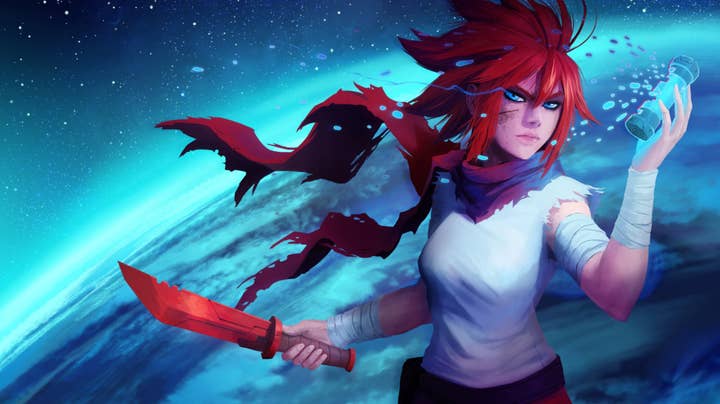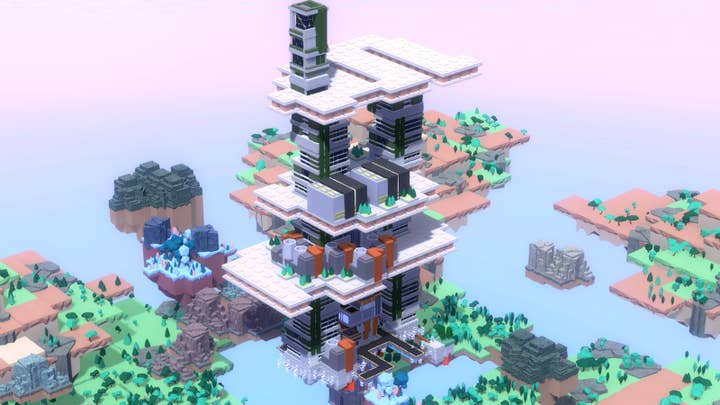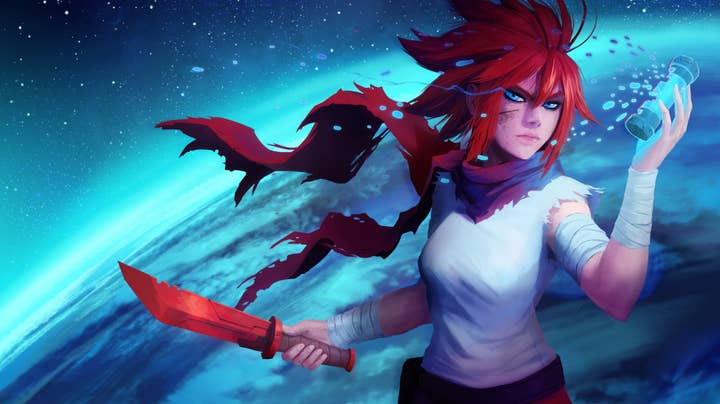A look at how publishers select, review, and sign indie games
Alessandro Cossidente explains what games go through to get from pitching to publishing
With rising production costs and bigger expectations to meet, it's not unusual for a development studio to look outwards for support. The practice became so widespread as of late, that even smaller publishers can receive dozens of requests every month.
And yet, only a tiny portion of these end up getting an offer. Such stiff competition and low success rate among developers beg the questions: what, exactly, will a game go through to get from pitching to publishing? And can you fine-tune your approach to increase your chances?
A preamble on first impressions
Before we delve further into how a publisher might evaluate the game you sent them, I want to take a moment and talk about discovery. At the risk of sounding obvious, the first impression your game leaves on potential investors will influence their decision. Many developers decide to break the ice with a pitch, although that is not the only way to get a publisher's attention.
The fact that a lot of people focus on pitching, however, is not entirely without a reason. In a highly-competitive environment, a well-crafted email and a thorough presentation is often all we have to understand whether we're interested in the game at all. If you're about to pitch your game to a publisher, here are some pointers to get the most out of it:
- Your presentation should include a pitch deck -- possibly one that contains detailed information about your game, your development plans, and an estimate of what you need help with.
- The accompanying email is just as important as the presentation itself. Think of it as a cover letter: your message should give us a general background of the game, mention any specific requests you might have, and anything else that helps you stand out.
- Publishers will want to see a playable demo, vertical slice, or a prototype. Because imagination can only take us so far and we'll need a way to evaluate both your project and the team behind it.
- Sometimes, your pitch simply gets lost in transit. Your email might end up in the spam folder, get buried by other messages or fail to catch the publisher's attention. If you haven't heard back after a couple of weeks, there is nothing wrong with sending a follow-up email and checking in!
In addition to pitches, most publishers will also look for interesting projects at events as well as on the internet. If you're attending the former, try your best and be both professional and prepared. You'll only get a handful of minutes to convince whoever you're talking to that your game's worth it.
As for the latter, there's a lot that affects your discoverability online. Depending on their scouting habits, publishers might monitor traffic on specific Twitter hashtags, scour Steam for promising projects, or keep an eye on other storefronts and platforms such as itch.io, Reddit or indieDB. Curating your online presence across these platforms could potentially help you get noticed that way -- eliminating the need for pitching altogether.

Part 1 - A foot through the door
Once a game has found its way to their desk, publishers will assess its value. Usually, the process begins with a review of all available information about the project itself and a playthrough of the demo. Next, we'll try to estimate how your game could perform on the market. This means looking at existing demand as well as competitors, analyzing current trends within the genre, and making sure the game has the potential to attract a community around it.
Depending on the information you provided, publishers might also reach out to ask for more details or even set up a quick introductory call. If you're planning to share sensitive details about the game, make sure you sign a non-disclosure agreement. These documents prevent both parties from sharing details with other entities and are designed to protect both your intellectual property and interests.
If you're planning to share sensitive details about the game, make sure you sign a non-disclosure agreement
This is also the part where publishers will usually be on the lookout for any red flags. Things such as discrepancies in the budget or in the amount of people on the team, past PR and social media drama could potentially discourage the publisher from working with you. Undisclosed partnerships, unrespectful behavior towards other developers, or blatant misrepresentation of the project in the pitch itself are usually also a dealbreaker.
Conversely, transparency tends to drastically increase your game's chances. Although you won't be able to influence this screening process directly, some good practices to stick to are:
- Be completely honest about your team's abilities and experience. While lack of experience isn't necessarily a problem, publishers will want to know in advance so that we can adjust our development strategy accordingly.
- Put together budgets and timelines that you can realistically work with until release. A common mistake among first-time developers, under-budgeting your time and money is a sure-fire way to burn out. And while some labels might agree to stretch those further down the line, they usually have no legal obligation to do so.
- Generally speaking, don't lie or misrepresent yourself. Not only it wastes everybody's time, being caught in a lie could also irremediably damage your chances of working with a publisher in the future.
Part 2 - Getting the call
Once the preliminary evaluation is complete, developers whose games managed to pique our interest are usually invited to a meeting with one or more of the publisher's representatives. Depending on the internal structure of their team, you'll likely talk to a combination of senior producers, development relations specialists or even the company's CEO.
Lasting anywhere from 30 to 45 minutes, the call can cover a range of topics spanning from the structure and day to day activities of your team, to the current stage of development that your game is on, to your marketing plans and any campaigns you might be involved in. We'll also discuss your technical and financial requirements to bring the game to completion as well as a plethora of other development-specific details.
Don't be afraid to ask about the services they provide and their approach to production, as each publisher tackles these in their unique way
For your part, the best way to approach this is to do some homework ahead of the meeting itself. Thoroughly research the publisher and their previous games and prepare whatever document you'll share during the call. Don't forget to have all files ready to share once the call begins and, if you haven't already done so, make sure to ask for that NDA we discussed above.
This call is also the perfect moment to get a feeling of whether the publisher is a good fit for your expectations. Don't be afraid to ask about the services they provide and their approach to the various stages of production, as each publisher tends to tackle these in their unique way. If you don't know where to start, here's a handy list of the topics that are usually discussed during these meetings:
- Production and internal communication - How will you keep in touch with the publisher? Will you be assigned a dedicated producer for the game? Are there going to be sync meetings with the team? How often will these happen?
- Milestones and progress - How are progress and milestones distributed on the timeline? What will the approval process look like? Will the publisher provide feedback when reviewing milestone builds?
- Marketing and social media - Will the publisher confirm their marketing plans with you and share progress?Do they have a community team or will you be expected to produce and post content yourself? How will they approach marketing spendings? Is there a minimum amount they'll invest in marketing if you agree to work together?
- PR and promotion - Who will be in charge of submitting your project to events, press and influencers? Does the publisher handle PR internally or will they be working with an external agency?
- Distribution - How many games do they sign and release in a year? What's their relationship with storefronts and platform holders?
Finally, this is also the chance for you to gauge just how excited the publisher is about the game. Keep note of the kind of responses you'll get to your questions, of potential suggestions, and the general vibe of the conversation. The publisher's tone and attitude might tell you a lot about the company you're talking to and be as informative as the call itself.

Part 3 - Preparing the draft
With a vertical slice, a good understanding of your needs, and having gathered enough information about the project, publishers will finally evaluate the game's actual likelihood of success and eventually make a decision. There might be additional questions for you to answer and even further calls that you'd be required to attend but, under normal circumstances, this stage is pretty much hands off for developers.
Depending on the publisher, your game, and a number of external variables, the process could take anywhere from a few days to a handful of weeks. As they go through the checklist, teams will also begin writing a draft of your publishing agreement -- the document that regulates your partnership -- and eventually send you a first version of it.
Although some publishers have simplified their contracts, it's not a bad idea to reach out to a lawyer and review the agreement together
Although some publishers have begun to avoid legalese and simplified their contracts, it's not a bad idea to reach out to a lawyer and review the agreement together. Find a firm that specializes in games or media publishing and ask them for their opinion on the more technical aspects of the document. Alternatively, some lawyers and associations might also offer pro-bono consultations for indie games.
Most importantly, and something that a lot of developers tend to miss, this is also your last chance to discuss any modifications to the draft itself. Nothing is set in stone yet and, while major changes to the agreement may be a dealbreaker at this point, most publishers will be okay with minor modifications to the roadmaps or timelines -- especially if it benefits your team's productivity.
Part 4 - Can we get a signature, please?
Several calls, meetings, and what will likely have felt like a hundred emails later, you should have ironed out most of the details of your cooperation. The publisher will send you an updated draft of the agreement and ask you to once again review it.
While it might feel like you've put the hardest part of the negotiations behind you, it's important you don't rush things at this point. Instead, you should take a moment and carefully consider your options -- especially if you've been talking to multiple publishers. As you evaluate each of the offers, pay particular attention to:

- Royalties, recoupments, and other financial details - these will likely be one of the first things you'll have discussed with the publisher, but you should still make sure the terms fit your need. Some publishing agreements might also include a minimum guaranteed amount of earnings and other specifics such as signing bonuses as well as additional benefits for hitting specific objectives such as sales or average review scores.
- The publisher's track records - specifically when it comes to releases that are similar to the game you're working on, as these might be indicative of how your project will perform. Remember that, while the actual number of copies sold is hard to find for most games, there is a trail of other crumbs you can follow. The amount of reviews, articles, videos, and -- in a broader sense -- material about a game that's available on the internet will give you a pretty clear picture of the publisher's efforts.
- An obligatory vibe check - While you might have a general idea of who you're dealing with, ask yourself this: did you feel comfortable discussing things with them? Did they seem transparent when answering your questions? If the answer is no, they might not be the right people to work with.
Once you're 100% sure of the deal you've been offered, you can go ahead and let the publisher know. In most cases, this last part of the process will involve receiving a final version of the agreement and -- provided everything looks the way it should -- putting your name on it. You might also get an invitation to join a Discord server or receive a care package with goodies and gadgets.
Wrapping things up
Technically speaking, the agreement will be effective immediately after you sign it. Congratulations are in order, you've just made it through the selection process and have secured the support of a publisher. That, in itself, is something any developer can be proud of -- especially if this is your first game.
In reality, these last few steps might take a bit longer than you'd expect. In the days following the signing, the publisher will likely organize a team-wide introductory call during which you'll get acquainted with the group and discuss the details of your first milestones. If the agreement includes a signing bonus or first payment, that will also be processed and delivered.
Past that point, the structure of your day-to-day activities will largely depend on which publisher you decided to go with. As a general suggestion, remember that you are still very much in charge of your game's destiny. Don't hesitate to speak up, ask questions, and share ideas with the publishing team!
A former games journalist, Alessandro Cossidente has been handling media and influencer relations for video games since 2019. He is now the lead PR person for indie publisher Critical Reflex, where you can reach him at alessandro@criticalreflex.com.
